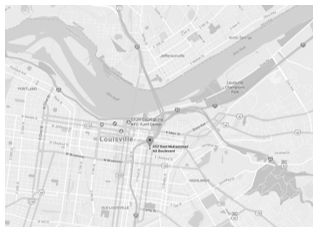UofL receives support to transform health care education
Health care is changing, and how the University of Louisville prepares students to deliver high-quality care is adjusting to those changes. A new educational initiative will have nursing and dental students collaborating to better identify and manage systemic diseases such as diabetes and cardiovascular disease that are sometimes linked to oral health. The UofL Schools of Nursing and Dentistry have received nearly $1.1 million from the U.S. Department of Health & Human Services Health Resources and Services Administration (HRSA) to support the project.
“We are proud to be among those developing creative ways to prepare students in the health professions to meet future demands,” said Dr. James Ramsey, president of UofL.
A report of the Interprofessional Education Collaborative, a consortium of several health profession organizations including the American Association of Colleges of Nursing (AACN), the American Dental Education Association (ADEA) and the American Medical Association (AMA) highlighted the need for students in health care professions to become proficient collaborators so they are better prepared to practice effective team-based care.
“We are facing new challenges in health care,” said David L. Dunn, MD, PhD, executive vice president for health affairs at UofL. “This project can foster interdisciplinary team building that can help reinforce coordination of care across patient conditions, services and sites of care.”
“Our family and adult nurse practitioner students will be learning together with dental students,” said Marcia Hern, EdD, CNS, RN, dean of UofL’s School of Nursing. “The goal is to help them enhance communication between the two professions and develop new best practices in patient assessment, consultation, and management to improve overall health for the underserved.”
“A key component to this grant is the integration of technology through the use of web-based discussion boards, an electronic health records system, an electronic student tracking system and student evaluations using standardized patients to deliver content and facilitate interprofessional interactions. Fortunately, UofL is at the forefront of technology-enhanced education and has the infrastructure to support it," said Whitney Nash, PhD, APRN, assistant professor and principal investigator for the project.
Adult and family nurse practitioner students and dental students will both take the Introduction to Interprofessional Education Course. These students also will participate in a second shared course – Integrated Health Assessment. The combined courses will better prepare nursing students to conduct oral examinations and dental students will broaden their knowledge on how oral health is connected to overall health. Students also will gain an understanding of the roles and responsibilities of each discipline.
Dental students are required to conduct a health history assessment with each new patient. If a patient has a health issue such as high blood pressure the day of the visit, dental care may be delayed and the patient referred to primary care practitioner.
On a pilot scale, the work already is underway. Since 2011, Dedra Hayden, MSN, APRN, instructor, has worked two-days a week at the UofL School of Dentistry to teach students how to conduct patient health history reports. The adult and family nurse practitioner students have taken part in a rotation at the dental school to learn more about conducting oral examinations.
“As research continues to link oral health and general health, we understand the need for this type of education,” said John Sauk, DDS, MS, dean of UofL’s School of Dentistry. “Oral diseases, for example, can point to undiagnosed diabetes or poor nutrition. We know there is a correlation between a certain bacteria in the mouth and heart disease. This partnership can teach students in both disciplines how to manage oral systemic problems.”
A Future Vision
UofL’s nursing and dental schools would like to be part of a new paradigm of health care delivery, where patients can receive primary care and dental care in one-stop.
New York University (NYU) Colleges of Nursing and Dentistry serve as the model; they established a nurse managed primary care clinic within the dental school. Patients without a primary care provider (PCP) can receive care at this clinic and those with a PCP are offered health prevention services that complement the care they already receive, often the same day as their dental visit.
“It is not unusual for dentists to screen for highly prevalent health conditions like diabetes and heart disease,” said Wendy Hupp, DMD, assistant professor of oral medicine, UofL School of Dentistry. “As the population continues to age and struggle with chronic illness, we see the need for new effective forms of health care delivery. NYU’s model offers reciprocal referral and consultation opportunities between the dental clinic and the nurse practitioner managed faculty practice. ”
During the summer, Hayden and UofL nursing student Chris Swift, a recipient of UofL’s Summer Research Opportunity Program (SROP) grant, conducted a small-scale assessment to evaluate the need for a nurse practitioner managed primary care clinic at the UofL School of Dentistry. Patients of the dental school were polled on whether they had a primary care provider (PCP), and whether they would be interested in a nurse practitioner managed clinic. Of the more than 175 patients surveyed, 27 percent had no primary care provider and 66 percent indicated they would seek primary care at such a clinic, if available.
“If we were able to offer a nurse practitioner managed primary care clinic here at the dental school, the benefit to patients would be profound,” Hupp said.
